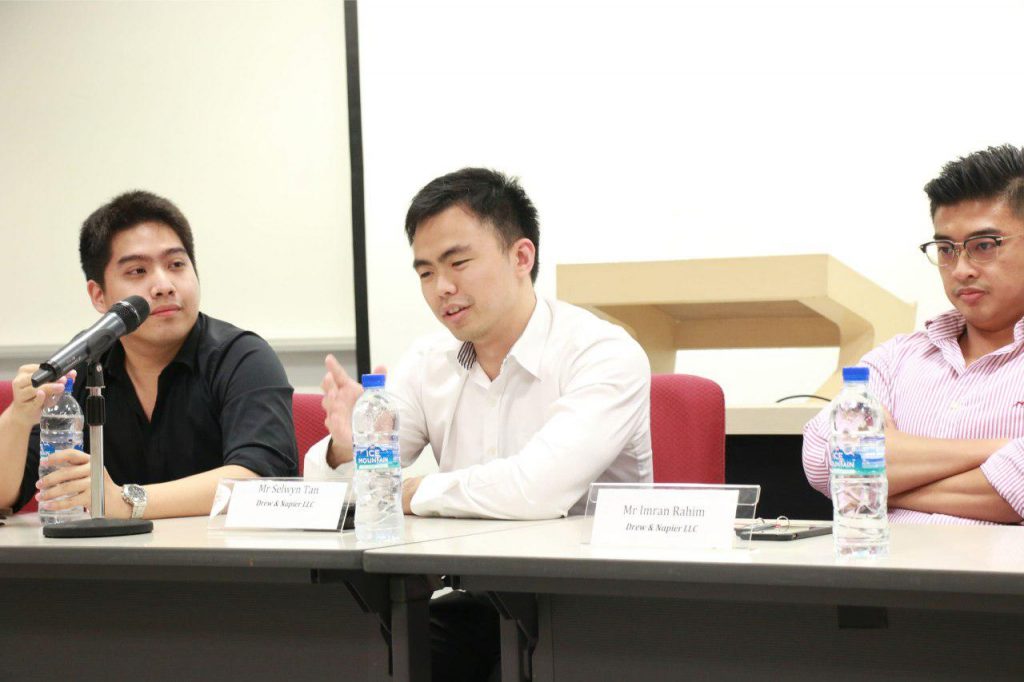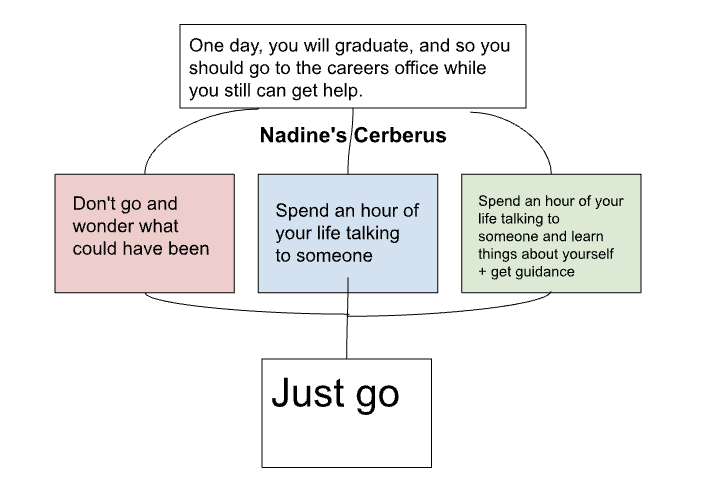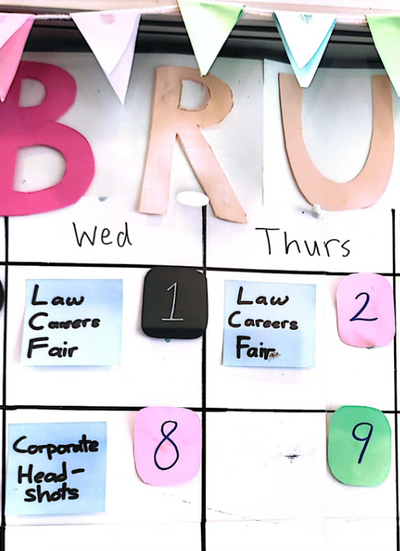Last Friday, 50 students gathered to “Parley with the Pros” in a panel and networking session with current practicing lawyers. The session was pretty light-hearted as all 6 panelists had entered practice not that long ago.
The panelists consist of:
Mr Nigel Yeo from Allen & Gledhill
Mr Imran Rahim from Drew & Napier
Mr Selwyn Tan from Drew & Napier
Mr David Fong from Drew & Napier
Ms Priya Gobal from Drew & Napier
Ms Wong Su Ann from Drew & Napier
Disclaimer: Drew did not pay us for this.
The panelists offered valuable advice and information on various aspects of legal practice and how to get there. Justified has summarized the top tips that they have to share!
- Internships are important — intern at the firms you want to work in.
Internships, according to Mr Imran, are important for two things.
First, it allows you to understand and know (to a very limited extent) the workings of the individual law firms. As most of the panelists have pointed out, it is very difficult for an intern who worked for a mere few weeks to get a big picture of what goes on in the firm.
Second, internships allow the firm to look out for suitable candidates to offer training contracts to. An internship is very telling of your work ethics, your social skills and most importantly, whether you’re a good fit to the firm. According to Mr Imran, Drew rarely offers TCs to students who have not interned under them, even if their grades are amazing. Do make an effort to intern at the firms you wish to join in the future!
- Scout out all the firms — not just the big four.
Understandably, a lot of us are striving towards the big four. Although the panelists were all from the big four, they pointed out that small and medium firms have their merits as well.
In small to medium firms, even as a junior associate, you will be working very closely with the partners and senior associates. Accordingly, there are more opportunities for you to view and work on a case in its entirety. Mr Imran gave the example of Mr Calvin Liang, who was in the 2015 40 lawyers under 40. Mr Calvin was able to progress so fast partly because he worked in a medium sized firm. This allowed him to handle a number of high profile cases, often times as lead counsel. Such opportunities may not be as available in larger firms and larger teams, where junior associates often get to see only a small part of the case.
However, there are also plenty of opportunities in big firms. Often times, as a junior associate under prominent legal figures, you will be working on cases at the edge of the legal frontier. Mr Imran and Mr David, who are working under Senior Counsel Davinder Singh, are prime examples of this.
Ultimately, as Mr Selwyn rightly said, it depends on what kind of learning you want to do.
- Grades are important (duh), but not all that is required to get a TC.
Let’s not belabor the point — grades are obviously important if you want to get into a good firm. However, the panelists also pointed out that grades are not the end all. Some students who may not shine in academics do very well in practice due to various other reasons. As such, don’t be too upset if you don’t come up tops in grades — firms also look out for practical skills, which you may shine in!
- Be the colleague/intern you want to work with.
Regardless of whether you are an intern or already a junior associate, the panelists suggest sticking to this important rule. Mr Nigel gave the example of how sometimes even the junior associates will judge that intern who “keeps going to the pantry”. Seems like watching documentaries during internships may not be the best idea. Oops :/
Another word of advice from Mr Imran — just don’t be weird.
- You can have a work-life balance in both small and large firms — or you may not.
Contrary to traditional folklore, working in the big four doesn’t mean you only sleep three hours everyday. In fact, every Wednesday is family day at Allen & Gledhill — you get to go home at 5.30pm, subject to work requirements. At Drew, everyday is family day, subject to work requirements.
Jokes aside, every firm, regardless of size, has its busy periods. Mr David says that it’s all a matter of give and take — you’ll always have time for the things that matter most to you.
- Enjoy your time in law school!!!
All the panelists unanimously affirmed this point. Mr Nigel mentioned that sometimes you may finish one semester of law school work in one week of practice. Seems like law school isn’t such a bad place after all.
- Join the moots
This is not really a tip but the panelists really want you to join their moots! Look out for them:
Allen & Gledhill Mallal Moots
Drew and Napier Advocacy Cup
Hope these tips will be helpful in getting that coveted training contract! Meanwhile, let’s all treasure the “carefree” times in law school.
Written by: Zhou Shiyin (Year 1)
Photography by: Chen Shilun (Year 2)











